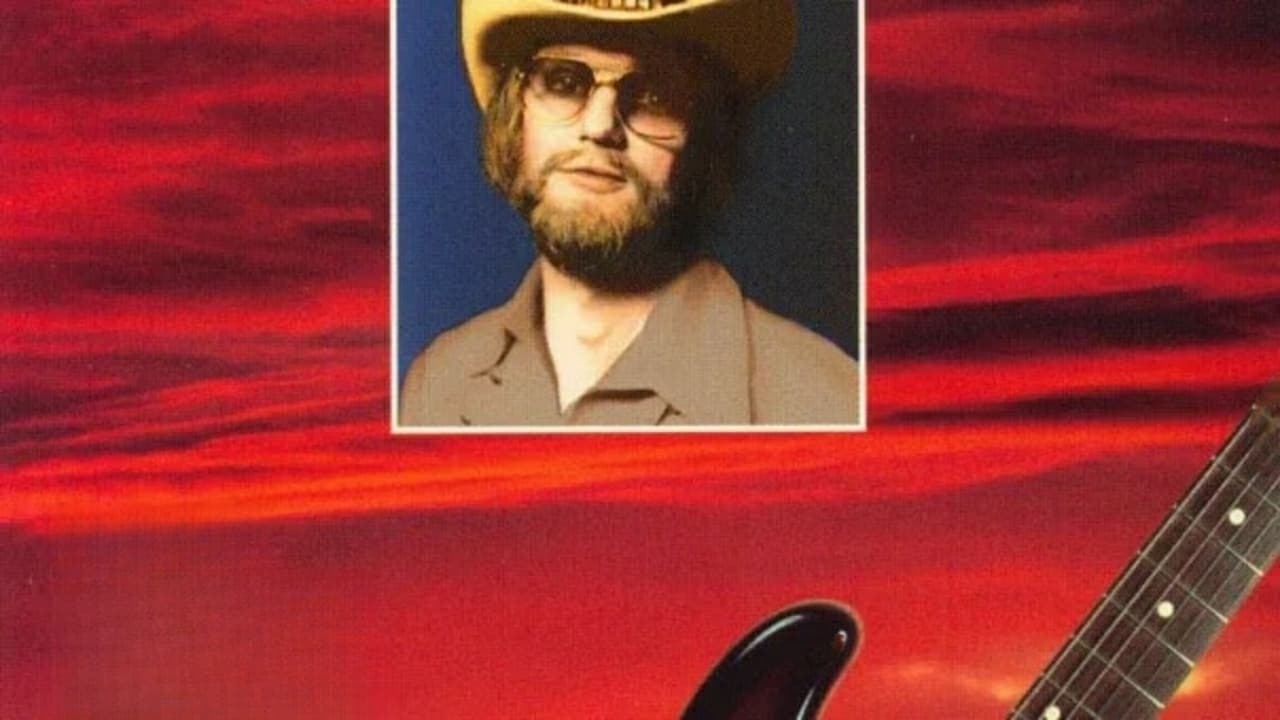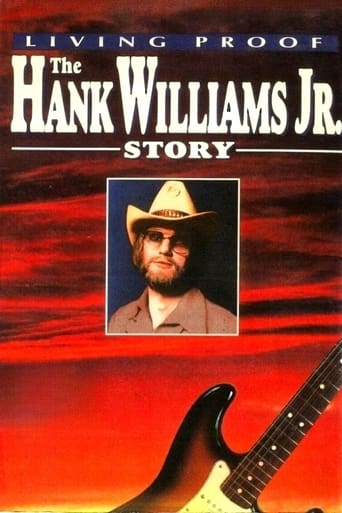



Absolutely Brilliant!
A Disappointing Continuation
A film of deceptively outspoken contemporary relevance, this is cinema at its most alert, alarming and alive.
View MoreThe film never slows down or bores, plunging from one harrowing sequence to the next.
View MoreHank Jr has always been a favorite. After reading and seeing Living Proof it left no doubt in my mind he is no longer "Standing in the Shadows of a Very Famous Man" HE IS THE MAN! We can all take a page out of Hank Jr's book, get up and be who you are not who someone wants you to be. Once he became his own person he became on of the best country singers we have and ever will have.Richard Thomas "was" Hank Jr. in the movie. When I first read he was to play the role, I couldn't see it. I had read the book and was going to pass on the movie. Not because I didn't like Richard Thomas, I thought it wasn't possible for him to "be" Hank Jr. I am glad now I saw the movie and would gladly see it over again. I believed he was Hank Jr. may heart ached for what he was going through. I thought I was going to know what to expect but this movie passed my Greatest Expectations. Thank you for the telling the story, writing the book and making the movie. Hank Jr isn't Jr anymore to me.
View MoreThis movie, though awkwardly casted (Richard Thomas as Hank Williams, Jr.?) is a good glimpse into the life and times of Bocephus in the early years before he was an American Icon. It is based on the autobiography of the same name (co-written by Michael Bane). The book is much better as is always the case, and contains some truly great story telling and insights. The movie on the other hand, is about what you would expect from a made-for-TV type of affair. Serviceable but far less than inspiring.I will only touch on a couple of the problems with this movie.1) The Fall. As most know, the main focal-point of Hank Jr's adult life was a 500 ft mountain-fall on Ajax Mountain, MT in August of 1975. The fall is intricately and graphically detailed in the book. Hank was attempting to cross a snowfield when his footing gave way. He slid mostly face-first down the mountain, finally crashing head first into a huge boulder. It was more of a slide than a fall, really. The movie just plain butchers this scene. Further, probably the most powerful part of the book describes the hours Hank spent on the mountainside waiting for rescue. His struggle against the elements and his desperate desire to live, along with his guide's (Dick Wiley) desperate scramble down the mountain for help. The movie doesn't even touch on these things.2) The music. In the movie, Hank wraps up the recording of his landmark "Hank Williams, Jr and Friends" album with the great song "Feelin' Better". Clearly, that song would have been a great addition to an already great album, but the thing is, "HW Jr & Friends" was recorded in 1975, before the mountain fall. "Feelin' Better" was on Hank's 1977 "The New South" album - released two years after the fall. In fact, the song is about Hank's recovery and return to the road. Also, the movie ends with Hank triumphantly returning to the stage (presumably in 1977, when he returned to touring) opening up with his hit "If Heaven Ain't A Lot Like Dixie". This song was released on his 1982 album "High Notes", a full five years after his return to the stage. These are such small but relatively important details - you would have thought they could have gotten at least the music right.3) Again, the casting. The diminutive Richard Thomas was probably one of the worst choices to play 6'4" Hank Jr. He pulls it off during the pre-fall scenes, (which comprises a majority of the movie), but the final concert scene with Thomas in fake beard, sunglasses and cowboy hat is just comical. And what's with the cheesy balloons dropped from the rafters? Again, this is a made-for TV movie, but the cheese factor was out of control. It is as if they never consulted with Hank, Jr - or even read the book - prior to filming.
View MoreThis is an exceptional biographical film about a very gifted musician, singer, and songwriter, Hank Williams Jr., who was always in his father's shadow. Miss Audrey Williams, Hank Jr.'s mother, was possibly the worst singer ever to cut a record (with the possible exception of Mrs. Miller and Leonard Nemoy). Yet she was an extremely domineering bitchy woman who thought her talents were at least equal to those of her ex-husband's and their son's. She was also a materialistic person who wanted all that was coming to her and more from the royalties of her late ex, who was a country music icon, and from controlling and managing Hank Jr.'s early career. "Living Proof" partly centers on the efforts of Hank Jr. to live his own life and to sing and make his own music. Stepping from the shadow of Hank Sr. not only involved breaking free from his father's music but also to break free from the "family tradition" of pills, booze, and women.Richard Thomas had to step out of the shadow of John Boy Walton to make this movie. He succeeds as far as the acting goes--he, in fact, gives an outstanding performance--but he fails as far as the music goes. When he tries to sing Hank Sr.'s songs there is no soul, no feeling to his music. It is as if he is merely singing notes to words on paper. Then when Hank Jr. starts performing his own music rather than his father's, the real Hank Jr. takes over and dubs for Thomas. What a difference and what an improvement! Too bad the producers didn't let Hank Jr. dub the music from the start. I have heard but have been unable to document it that Hank Jr. refused to sing his father's music in the made-for-TV film for it was a time in his life when he was definitely doing his own thing in the music industry. Other than this one flaw, the movie is excellent in its acting and in its presentation of Hank Jr.'s life from the time of his father's untimely death up to the point where he almost dies from a fall while on a mountain climbing venture in Montana. His whole face had to be reconstructed and one of his eyes was nearly gone, hence the reason for the dark glasses and beard. The soundtrack is a gem containing some of Hank Jr.'s best songs, including "The Blues Man." Not only does Richard Thomas do an admirable acting job, the entire cast is great with Merle Kilgore playing himself. It must have been strange for Merle to reenact what really happened, for example when he found Hank Jr. nearly dead in the pool from a drug overdose.If you can find "Your Cheatin' Heart" playing on a satellite station, it is interesting to watch it back to back with "Living Proof." They are excellent musical biographies of a father and a son, both gifted and talented performers. I don't think either is available on DVD or VHS.
View MoreRichard Thomas is at his very best. This is a must see for Thomas fans as well as Hank Williams,JR. fans. I had never listened to his music but after Thomas' excellant portrayal of this tormented man I headed straight for the music stores.
View More